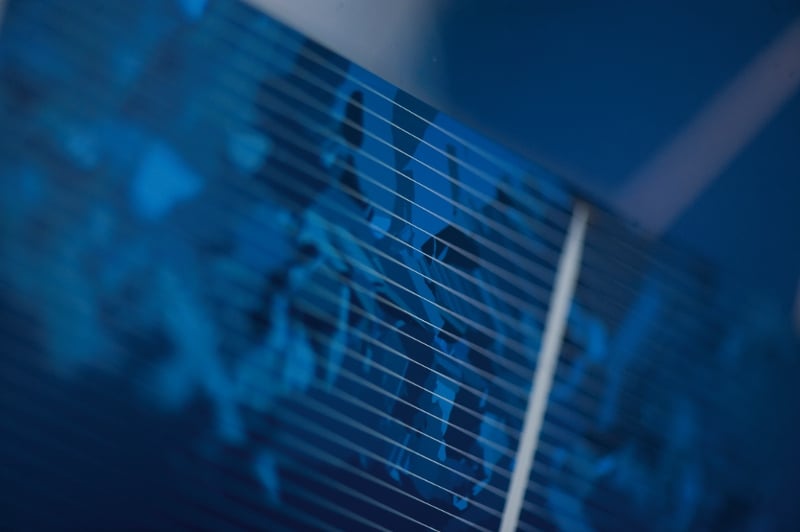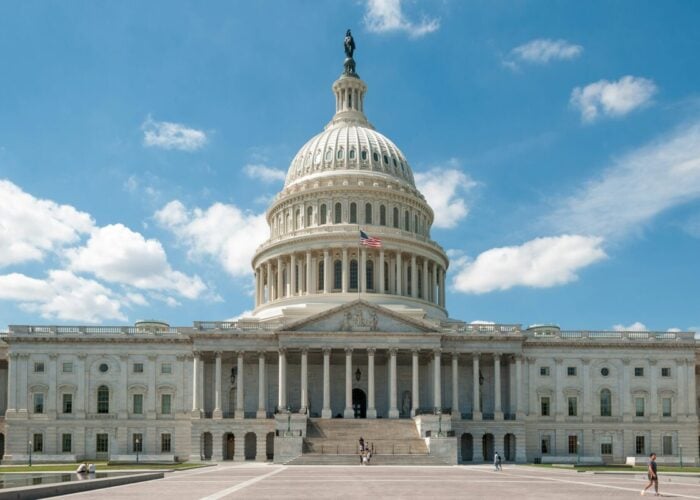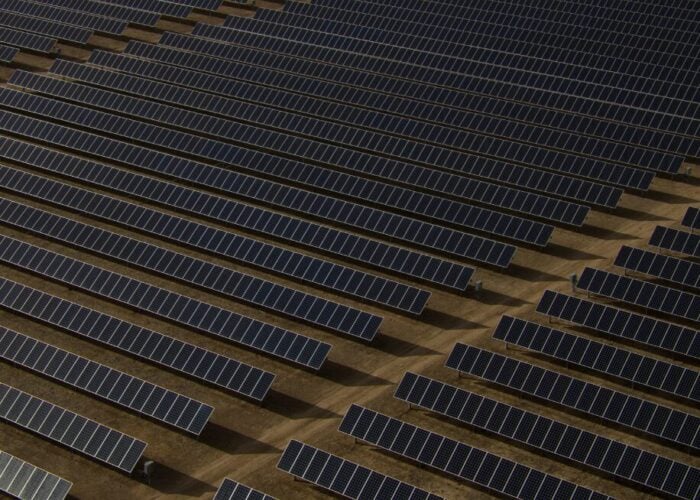
Fresh questions have been raised over measures to prevent “dumping” of cheap solar products from China into the EU, following the news that two more Chinese exporters have been removed from the undertaking.
On 12 November, two more firms were removed from the EU-China minimum import price (MIP) undertaking by the European Commission (EC). Chint Solar and Sunny Energy were found to have breached some of the rules around accessory obligations to the MIP, joining Renesola, Canadian Solar and others in being taken out of the MIP arrangements which allowed them to continue trading in Europe.
Try Premium for just $1
- Full premium access for the first month at only $1
- Converts to an annual rate after 30 days unless cancelled
- Cancel anytime during the trial period
Premium Benefits
- Expert industry analysis and interviews
- Digital access to PV Tech Power journal
- Exclusive event discounts
Or get the full Premium subscription right away
Or continue reading this article for free
While each case varies in its details, the companies that have been removed have all used various means to circumvent these necessary obligations, which include a prohibition on selling to both EU and non-EU customers of the same company, for example.
In such cases, the picture for EC investigators becomes more complex, as companies could have formally complied with the MIP while in reality using a loophole to avoid some of its requisite conditions.
At present, producer-exporters from China have to produce quarterly and six-monthly reports for the EC, with more than 100 obliged to do so. According to legal sources, the EC is unable to check all of these and currently samples reports from just a handful of companies.
Due to expire in December
The future of the MIP is not clear and it could come to an end in just under a month’s time anyway. A decision by the commission on whether it will conduct a so-called expiry review has to be made by 7 December, as the two-year period since the implementation of the undertaking in 2013 comes to an end then. According to a source within the legal profession, who preferred not to be named, due to a request by EU Pro-Sun, the SolarWorld-led trade group which advocated the anti-dumping measures in the first place, an expiry review is likely.
According to the source however, that expiry review investigation can only abolish the undertaking or keep it in place as it is until the review is complete – it does not have the power to amend the measures. However, in the event the commission decides to investigate further, it could also launch a so-called interim review, which would give it those powers, the source said.
It is apparently an “open question” whether or not this will happen, but if it did, the EC would be able to enact measures such as the lowering of duties or make changes in the scope of products included in the investigation.
Analyst’s view
According to the industry group Solar Alliance for Europe (SAFE) and others, the ongoing dispute is ultimately dampening demand for solar installations in Europe. With Europe’s solar manufacturing base limited to SolarWorld and a few much smaller players, there is an argument that the rest of the value chain, including installers, O&M companies, investors and project managers will lose out overall. In September, more than 20 European trade associations called on the EC to end the trade restrictions.
Similarly, external factors, such as the effect of this dampening of demand in meeting carbon reduction or renewable energy targets ahead of the COP21 talks could ultimately have an influence. The EU could take this aspect of public interest into account and could weigh up the interests of the union’s remaining producers versus others in the value chain, including consumers.
Additionally, from an economic standpoint, it is argued that 75% of the solar value chain in the EU is created in the manufacture of production equipment which is then sold to panel and cell producers – in regions including China.
Commenting on the latest developments, Finlay Colville head of Solar Intelligence, PV Tech publisher Solar Media's market research arm, said the “entire MIP saga” was “becoming largely a European and Brussels artefact of the bygone days of mainland Europe solar.”
According to Colville, the undertaking offers little comfort to either side of the dispute – with even Milan Nitzschke, VP of the dispute’s main protagonists SolarWorld recently describing an explanation of the price benchmarking methodology used by the EC to determine MIP as “absurd”.
Colville also said the slow speed of decision-making in Brussels was a concern for some. He claimed too that the whole industry was being stifled by the MIP issue.
“Regardless of your view on whether dumping is an issue today, or any other bigger picture issue on MIP, it is high time the system was changed. Whether it moves to a US-style import-duty type system, or gets scrapped altogether, is up for grabs, but change would be welcomed by most,” Colville said.
“The sad reality of MIP is that many of the companies in Europe that were meant to benefit from MIP simply had to price below this marker to get business. Ultimately, the most affected have been the countries around Europe that are itching to move to a subsidy-free grid-parity situation, and are stopped in part by a module pricing environment that is not indicative of the global market changes and price erosion.”






